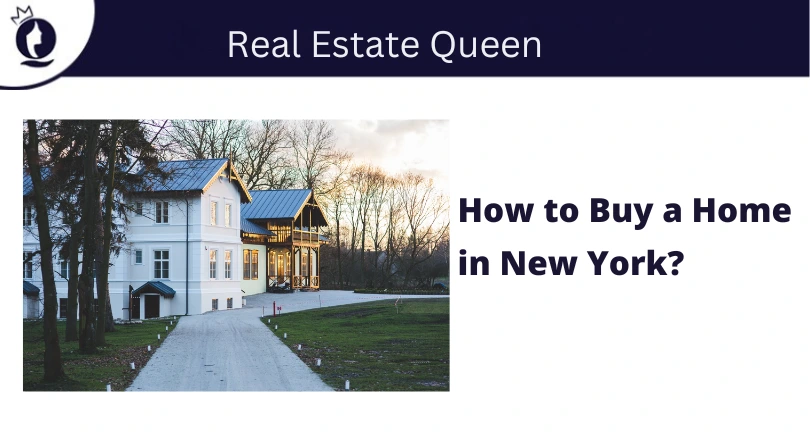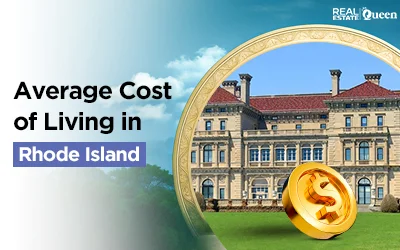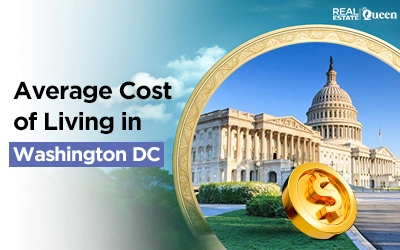
In 2025, New York’s housing market presents a unique opportunity for homebuyers. The number of homes sold has dropped by 4.99% Y.O.Y., creating a more balanced market for the buyers.
This guide provides a detailed plan for buying a home in New York, navigating its challenges while leveraging its benefits.
Key Takeaways
- Step 1: Assess your finances and credit, setting a realistic budget for New York’s housing market.
- Step 2: Get pre-approved for a mortgage with required financial documents.
- Step 3: Hire a licensed New York real estate agent and attorney.
- Step 4: Search neighborhoods, compare prices from NYC to Buffalo and Albany.
- Step 5 Make a competitive offer with earnest money and contingencies.
- Step 6 Complete inspections and appraisals during due diligence.
- Step 7 Close the deal and utilize state-specific benefits and assistance programs.
Current New York Housing Market Overview (2025)
The New York housing market is shifting in 2025. Buyers now have more power with a 46-day average market time and 0.2% inventory growth.
The 6 months of supply of homes statewide means inventory is moderately balanced, allowing for both buyer choice and seller confidence across diverse markets.
How to Buy a Home in New York: 7 Steps
Step 1: Figure Out Your Finances
Before you look for homes for sale in New York, set a clear budget. With the state’s high cost of living and property taxes, careful financial planning is essential beyond the usual home-buying costs.
How Much House Can You Afford in New York?
- Average property tax rate: When calculating how much house you can afford in New York, consider the average property tax rate of 1.53%, which impacts your overall monthly housing costs.
- Homeowners insurance and title insurance: Homeowners insurance and title insurance are mandatory for all financed purchases, adding to your budget requirements.
- Condo/co-op fees: If you’re buying a condo or co-op, monthly fees can range from $350 to $1,200, varying by building and location.
- First-time homebuyer credits: Use first-time buyer programs like the STAR exemption to cut property taxes by $348–$650 a year.
Get Your Down Payment Ready
FHA loans in New York require a minimum credit score of 580 to qualify for the low 3.5% down payment option. Borrowers with scores between 500 and 579 may still qualify but must make a larger down payment of 10%.
Conventional loans typically require a credit score of 620 or higher to secure favorable terms.
State-specific programs provide valuable support for buyers:
- SONYMA Down Payment Assistance Loans: It offers affordable mortgage options combined with down payment help for first-time buyers across New York.
- NYC HomeFirst Down Payment Assistance Program: It targets qualified New York City buyers, providing grants and affordable financing to ease the upfront costs.
- NeighborhoodLIFT from NHSNYC: This helps buyers with down payment assistance and homebuyer education to make homeownership more accessible in NYC neighborhoods.
Get Pre-Approved for a Mortgage
As of September 2025, the average 30-year fixed mortgage rate in New York is 6.75%, while the 15-year fixed rate is 6.14%. These rates affect both your monthly payments and the total cost of your loan.
To get pre-approved, gather your financial documents in advance. Include the last two years of tax returns, W-2 or 1099 forms, 30 days of pay stubs, two months of bank statements, a photo ID, and proof of any assets or investments.
Having these ready speeds up lender review and strengthens your mortgage application.
Step 2: Find Your Dream Home in New York
With clear priorities, you can find your ideal home faster. Houzeo lets you browse the latest New York listings with smart filters for price, ZIP code, schools, and more. Save searches, set alerts, and navigate New York’s market efficiently—without paying broker fees.
Whether you are looking for homes for sale in New York City, Buffalo, Rochester, or Albany, the best place to buy in New York depends on your priorities:
- New York City: vibrant urban living with rich cultural amenities, though prices are high.
- Buffalo and Rochester: more affordable markets with faster sales and less competition.
- Albany: balanced cost and quality of life with moderately competitive markets.
Step 3: Make an Offer That Wins
Earnest money deposits in New York usually range from 1% to 3% of the purchase price. In competitive New York City markets and for luxury homes, deposits can reach 10% to show serious intent.
Including key contingencies like financing and inspection helps protect your deposit. Inspection periods typically last 7 to 14 days, giving buyers time to fully assess the property before closing.
Step 4: The Crucial Due Diligence Period
The inspection contingency typically lasts 10 days, with standard inspections taking 2–4 hours to complete. Key inspections in New York include:
- General home inspection – overall condition of the property
- Radon testing – checks for harmful gas levels
- Termite/pest inspection – identifies structural damage risks
- Oil tank sweep – locates underground tanks that may cause issues
- Lead paint inspection – important for homes built before 1978
Step 5: Secure Your Financing and Insurance
Flood insurance is required for homes in FEMA-designated high-risk flood zones in New York. It protects against flood damage, which standard homeowners insurance usually excludes.
Title insurance is mandatory for all financed purchases, protecting both lenders and buyers from ownership disputes. For co-ops or condos, ensure the building’s master policy covers flood, fire, and other common risks for full protection.
Step 6: Prepare for Closing Day
Expect closing costs between 2–6% of the purchase price. Key fees include attorney fees, title insurance, property taxes, and development or HOA fees ($200–$800/month).
You have a mandated 3-day review period for the Closing Disclosure document before final signing.
Step 7: Welcome Home!
New York homeowners can take advantage of several programs to reduce property taxes and costs. Key benefits include:
- Basic STAR Exemption – offers up to $348 off school property taxes for eligible homeowners
- Enhanced STAR Exemption – provides seniors with up to $650 in annual tax relief
- First-time homebuyer programs – local initiatives that deliver financial assistance and credits to lower upfront costs
Tips for New York Homebuyers: Do’s and Don’ts
Do’s
- Analyze metro-specific market data to spot best opportunities
- Use first-time homebuyer programs to reduce upfront costs
- Engage licensed real estate agents and attorneys early
- Conduct all specialized inspections diligently
- Lock in mortgage rates promptly in a rising interest-rate environment
Don’ts
- Overlook neighborhood-specific fees and tax implications
- Waive essential contingencies just to win bidding wars
- Skip title and insurance requirements unique to New York
- Delay document preparation or financial pre-approval
- Ignore market supply and demand shifts in your target area
Conclusion
Buying a home in New York in 2025 requires careful planning and a strong understanding of local market trends.
With median prices rising steadily, leveraging state programs and expert guidance can make your purchase smoother and more affordable. Begin your journey prepared and confident.
Frequently Asked Questions
How long does it take to buy a house in New York?
It typically takes 30 to 45 days from contract signing to closing, though timing can vary with market factors and financing speed.
➡️Read more to know more about preparation for the closing day
What credit score do I need to buy a house in New York in 2025?
The minimum credit score for FHA loans usually requires a minimum credit score of 580, while conventional loans expect 620 or higher.
How can I find my dream home in New York?
Find your dream home in New York depends on your priorities, whether it’s New York City for vibrant urban living and culture, Buffalo and Rochester for affordability and quick sales, or Albany for balanced cost and quality of life.





